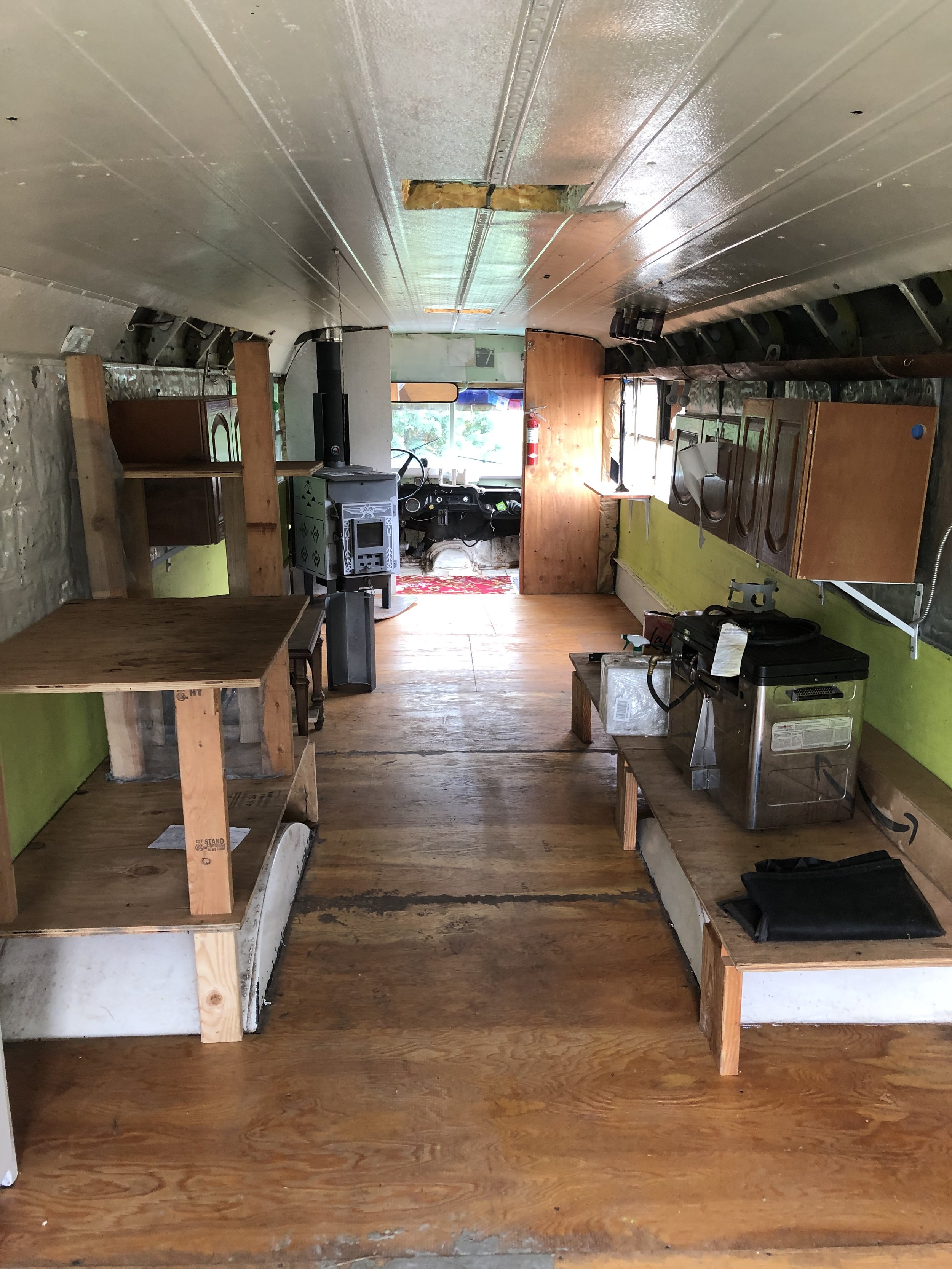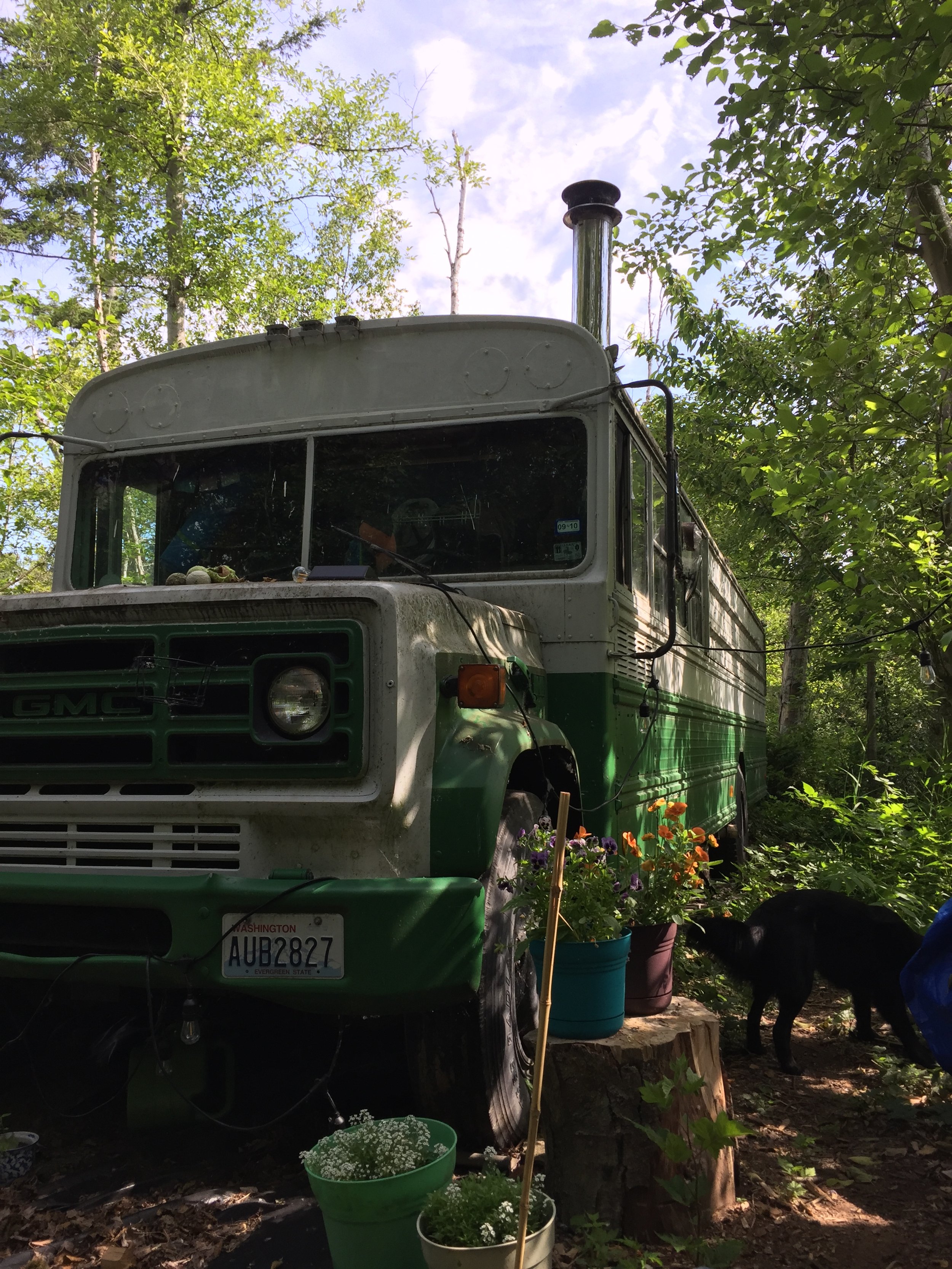Homesteading Toward a Dream
My story begins in the Midwest. I grew up spending a lot of time with my grandparents, who lived out in the country. I was very lucky to have a safe and loving childhood, spending a lot of time in the woods and fields, close to nature and enjoying barefoot summers catching fireflies, building stick forts, and using a lot of imagination.
My father was often working on cars and fixing things, and I enjoyed helping him, usually by holding a flashlight and handing him tools while he was under the car. Fast forward to one of my first jobs as a roofer and general handyperson assistant. I had replied to a Craigslist posting seeking a helper and offered to work for free to prove my worth. The contractor hired me (he did pay me minimum wage to start) and purchased my first set of tools. I still have that hammer.
At some point in my journey, I felt that I needed to start college. Being still in my early 20s, I hadn’t yet become skilled at managing my time. Taking full-time classes with a full-time job was too much for me, so I dropped out of school. In 2010, I drove across the country to Washington state in my car and with about $300 to get there. I took a dishwashing job at a restaurant while I looked for something else—which ended up being at Whole Foods. Though I enjoyed the new experience and learned a lot about cheese, Seattle was very expensive, even then, and I still had not heard about trade unions or apprenticeships, which would have been a great option for me at the time.
Josephine lived alone for 5 years in this converted van that she outfitted. It wasn’t until she discovered a union and an apprenticeship that she was able to move into a cabin rental.
To secure housing, I converted a school bus. Lucking out again on Craigslist, I found a 40-ft. bus that had been partially converted, for $1,800. It had all the seats out and some basic electrical installed, so I thought, why not? I added an insulated floor, painted the inside with Rustoleum, added air vents and a wood stove, and built it out to be a pretty decent little home for myself, my dog and my cat.
Living this way was not all roses and sunshine. Very often it was uncomfortable, uncertain. I became very resourceful and focused, and knew that there was no going back—only forward. I became a proficient list-writer to stay organized. I kept searching for not just my path, but a good path, and tried several other jobs. I became a licensed life and health insurance provider, though I never went through with selling insurance — I just didn’t like it. I worked in a realty office, as a delivery driver for a local produce co-op, and did short-stint construction gigs.
Then I got a job in apartment maintenance for the flexibility and freedom so I could attend full-time classes at Whatcom Community College, studying IT networking and cybersecurity. I had a really good time doing all this, and was extremely busy with work and school and my little homesteading life. But, at some point, things changed at work. They decided they didn’t want to offer me flexibility for attending school anymore, right before my next quarter was starting. This was very disappointing, but it was just another problem I had to solve.
The electrical shop that serviced the apartments took me on as an apprentice, as we had worked on several projects together; they also allowed me to attend class, as they knew I was an efficient, good worker. This shop organized into the union, and that is how I joined the International Brotherhood of Electrical Workers. This also put me into the apprenticeship program, which I have nearly completed as I write this.
This will be my second associate’s degree. My training has included on-the-job experience working on very cool sites, such as Hanford nuclear facility, substations, waste-water treatment plants, refineries, and other critical infrastructure. The experience working with medium voltage equipment, motor control centers, and wiring up all kinds of devices and systems is not something I would have experienced without the union apprenticeship.
My journey doesn’t follow convention, but it worked out anyway. During the last 12 years, as I was living across the country, I knew I was the only one to come to my rescue, and I grew a lot over those years of figuring out stable housing (though it was “just a bus,” it was MY bus). I hope my story will inspire you to charge ahead, make plans even though they may change many times, and most importantly, never give up. Sometimes, we just have to accept our limitations, and work within our bounds, but that doesn’t have to limit you.
Josephine sold her converted bus and now rents a cabin with her wife.
Trades is challenging work because you are often dirty, cold, rained-on, burning in the sun, tired, uncomfortable, and often feel sort of outcast from the white-collar side of construction. I’m not sure what can be done about all that, and it is common to see issues with alcoholism, divorces, and other sad things. Is that because of lack of mental health care support and services? I can’t say, but I hope I continue to see positive changes in this area. My current employer, Mills Electric, is the best contractor I’ve ever worked for. They have brought up mental health and encourage their employees to take time off when needed; they also have staff available for conversation and support.
Without apprenticeships, I would not be as confident, skilled, and educated as I am today. My advice for success: be willing to show up for your life, treat people well, and keep your promises. Life isn’t always fair, but it can surprise you with what solutions come your way. Give people the benefit of the doubt, and pick your battles; let the little stuff go and focus on what you’re setting out to do.
I see myself working in electrical systems and construction in some capacity, as well as expanding into cybersecurity for critical infrastructure, especially electrical distribution, which I find very exciting!
Good luck everyone, and follow your dreams. By having new experiences, listening to others, and making connections, you never know what you’ll discover about the world or yourself.
Just go, learn, do, and stand yourself back up.






